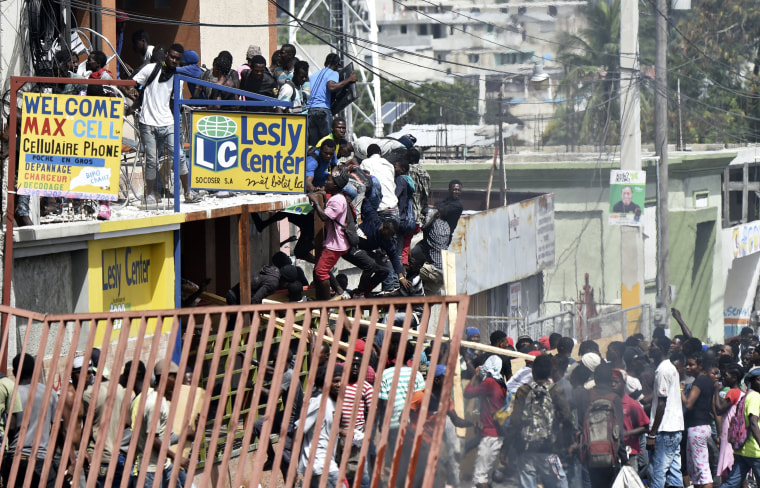PORT-AU-PRINCE, Haiti — Calm settled over much of the Haitian capital on Monday after three days of violent protests and looting sparked by a government plan to raise fuel prices.
The relative calm came amid a strike by mini-bus and taxi drivers, as well as the closure of most businesses. The strike made it impossible for most Haitians to get to school or work, and the streets of Port-au-Prince were largely deserted.
And yet protesters gathered in some areas and clashed with police. In recent days, protesters had pillaged, burned and vandalized shops in the capital city. Journalists saw young men stripping shelves bare in some supermarkets that were charred during the demonstrations, and several bodies were seen in the streets.
The protests erupted on Friday, hours before the government-set price of fuel was set to rise by up to 50 percent — a move prompted by the International Monetary Fund, which pressed Haitian officials to curb government subsidies for food.
The government canceled the price hike as the unrest began to escalate, and airlines nixed flights to the impoverished country.
As the chaos unfolded, the U.S. Embassy in Port-au-Prince on Sunday warned American citizens to shelter in place, noting that many flights had been canceled and that the "airport has limited food and water available."

"Telecommunications services, including Internet and phone lines, have been affected throughout Haiti," the embassy said. "It may be difficult to reach people through normal communication methods."
The cancellation of flights stranded church groups and volunteers from a number of U.S. states, including South Carolina, Florida, Georgia and Alabama. Chapin United Methodist Church in South Carolina said that its mission team was safe but stuck.
In addition, a North Carolina doctor and his son were part of another medical mission group that was unable to leave Haiti. Shelley Collins told television station WRAL that her husband, James, and their son got to an airport but could not fly out.
